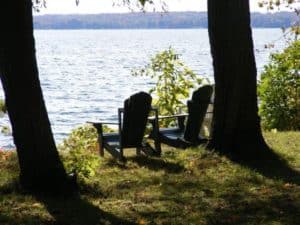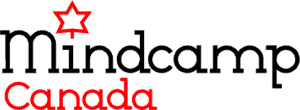 In 2003 Kristen Peterson, John Sedgwick, and I thought it would be fun to invite some colleagues to a weekend retreat. We asked a group of people who specialized in creative problem solving and innovation if they would be interested in sharing their experiences and expertise with one another. Our mission was pretty simple: to expand our collective capacity to think better — to explore new ways to improve our skills in creative thinking, critical thinking and affective thinking.
In 2003 Kristen Peterson, John Sedgwick, and I thought it would be fun to invite some colleagues to a weekend retreat. We asked a group of people who specialized in creative problem solving and innovation if they would be interested in sharing their experiences and expertise with one another. Our mission was pretty simple: to expand our collective capacity to think better — to explore new ways to improve our skills in creative thinking, critical thinking and affective thinking.
We wanted to do it cheaply, on a cost-recovery basis, so we found an old boy scout camp that was available after its summer season (some Mindcampers will still remember it). We made a deal for 30 beds — all about half a person wide and hermetically sealed in rubber. Then we put the word out. This was almost a year before Zuckerberg dreamt up “The Facebook” in his Cambridge dorm room. So all our communication was via email and telephone.
After a few weeks of what you could laughably describe as promotion, we had our 30 people — professionals who made a living helping clients think more productively. But something else happened. Word leaked out. And other people — educators, entrepreneurs, and the just plain interested — started asking if they could come too. The scout camp was happy to allot more rubber beds. So we ended up with about 60 participants — more or less a 50-50 split between the professionals and the curious.
For no particular reason, other than that we were using a scout camp to host workshps about the mind, we called our ourselves Mindcamp.
At the close of the weekend, almost all the participants asked about the dates for next year’s Mindcamp. Only then did we realize there would even be a next year.
Over the years we’ve grown to over 200 participants, about 30% of them are facilitator/presenters, with the rest coming from academia, business, and once again the just plain curious. We usually have attendees from ±15 countries — mostly of course from the US and Canada, but also from as far away as Australia, Korea, and New Zealand. This year’s Mindcamp will have presenters and participants from:
There will be programs ranging from the scientific to the practical to the ephemeral. We don’t offer lecture-style sessions. Instead, we focus on high-engagement programming. Our sessions offer participants the chance to experience, discuss, unpack, and test the material for themselves. The learning is always dynamic, multi-faceted, and experiential.
Our programs are usually blow-away. People often agonize over choosing between the 7-8 concurrent sessions available at any given time. I sometimes joke that the more difficult it is for people to choose which sessions to attend, the more successful we’ve been.
Our theme this year is Postcards from the Edge. We ask our presenters to interpret the themes however they see fit. That always produces wonderful surprises, often way beyond the original intent of the theme. This year, I’ve combed through dozens and dozens of program submissions about how approaching our edges, challenging our edges, and going beyond our edges — whether social, cultural, business, cognitive, scientific, or personal — can bring out the best in us. And yes, once again it’ll be agonizing for our participants to choose between them.

Of course, we outgrew the scout camp long ago. We now use a mid-level (nice, but not luxurious) resort on a beautiful lake, but we still call ourselves Mindcamp. That’s because we’re not all about programming. We also offer open afternoons where Mindcampers can swim, canoe, kayak, sail, hike, schmooze or snooze. We have campfires, poster sessions, and something we call the Camino. Every year, we do our best to order up the world’s most spectacular fireworks, the Aurora Borealis, and if the gods are willing, we’ll get one.
You can check out our website at
We’re pretty close to booked up, but if you hurry you might be able to grab one of the remaining spaces.
You’ll probably be surprised by how inexpensive four days that can change your life can be.
Maybe you’ll even send a postcard from the edge to your friends back home.
